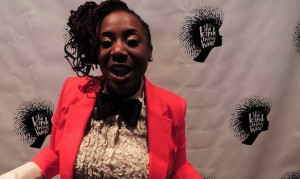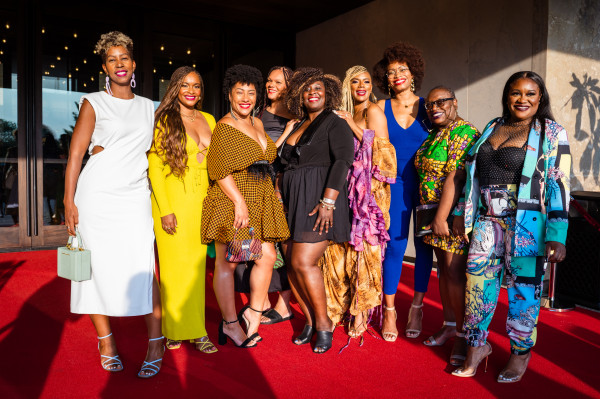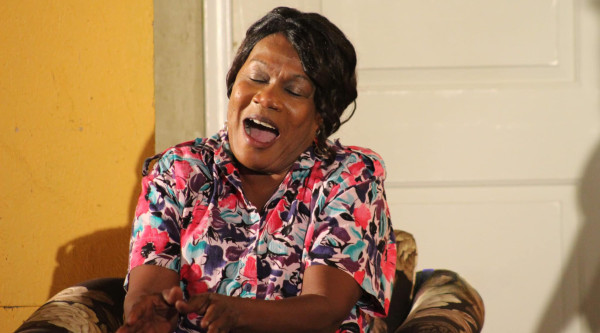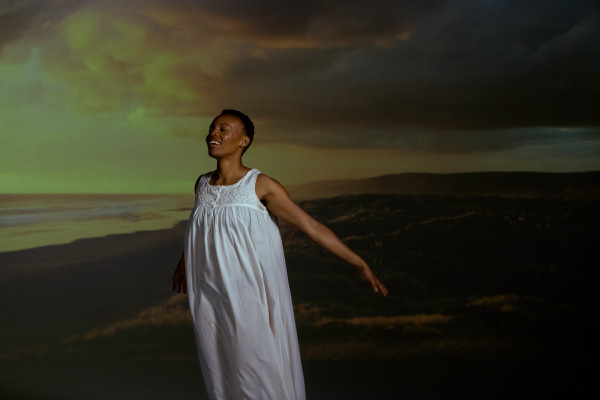In his essay, How to write about Africa, award-winning Kenyan author Binyavanga Wainaina uses satire, absurdity and humour to tackle race and the stereotyping of Africa, but most importantly grapples with the question, “who gets to tell the story?”
Brooklyn-based playwright, Jackie Sibblies Drury’s We are Proud to Present a Presentation About the Herero of Namibia, Formerly Known as South West Africa, From the German Sudwestafrika, Between the Years 1884-1915 puts the question to the test. And yes, that is the actual full title of the play.
We are Proud to Present… opens with a brief introduction into a little known genocide, referred to by Actor 1/White Man (Brett Donahue) as the ‘rehearsal Holocaust’. A slide presentation by six individuals hopes to educate us on the ruthless extermination of 80% of the Herero people, between 1904-1907, by driving them into the desert.
We learn this in the first 15 minutes of the play: from 1884-1915, Namibia was a German colony known as Sudwestafrika. Two tribes existed, the Herero and the Nama but the Germans favoured the Herero and gave them the power to rule over the Nama. A dry, arid landscape, Germany began draining the minimal resources of the country by attempting to build a railroad. They enacted laws that took the land away from the people by simply being German. If a German decided he wanted a plot of land, he got the land and everything on it. The Germans took the cattle, the land, and the resources; they banished the Herero to the desert while building a 155-mile long wall to keep them out. The Herero people attempted to fight for their land in a rebellion. An “extermination” order was issued. The genocide ended in 1915 during World War I when the British defeated the Germans in the territory renaming it South West Africa. We are never told when it becomes Namibia. It is inconsequential to the story being told.
What follows is a messy journey into the uncomfortable world of telling someone else’s story. How do three white actors and three black actors tell the story of genocide in 20th century Africa? For the next 100 minutes, we watch these six actors try to create a play about the Herero genocide. The story is a difficult one to tell because there just simply isn’t enough information available to tell it well. Actor 6/Black Woman played engagingly by Khadijah Roberts Abdullah drives the group to explore the characters, to make an attempt to become the characters.
It is this journey into Pirandellian (a method of dramatization in which actors and the characters they play become inseparable and indistinct) style theatre that makes the play engaging and powerful. Trying to tell this story leads to racial tension and tempers flaring between the actors. They spend a great deal of time exploring letters German soldiers wrote to their wives during the genocide. Letters of longing and romance with almost no mention of the genocide, no mention of the Africans. Actor 2/Black man played flawlessly by Marcel Stewart asks, “Are we just going to sit here and watch some White people fall in love all day?” He later asks, “Where are all the Africans?”
It is Black man’s anguish and frustration with the letters that begins to turn this rehearsal on its racially fraught head. By focusing on the letters, the oppressors or white men are shaping the storytelling. The letters make no mention of the people, of the Herero. The letters don’t tell us what happens to them. White man wants to stick to the evidence we have. He doesn’t want to improvise. But, if they hope to tell the story improvisation is the only choice they have. This is where Drury blurs the lines between actors and characters perhaps too much. Wouldn’t actors in the 21st century be able to remain in control and aware of their realities in a racially charged setting?
And so, they dig into what they know of white and black relations in moments of genocide. They dig into aggression, into their personal histories. In trying to excavate the truth of the past we learn nothing more about the genocide; we learn more about the actors, themselves and their pasts. The white men can tell you where they come from; they can name their families lineage one generation at a time. Black man and black woman cannot.
The end of the play is intense, unsettling and possibly overdone. In some ways, it oversimplifies the relationship one can have with their past and actors' abilities to remain separate from the material. Strong in its application of multilayered ensemble work, I recommend giving this production 90 minutes of your day if only to answer the question, “Who gets to tell the story?”
We are Proud to Present… is a part of the November Ticket, 3-award winning and critically acclaimed plays presented by The Theatre Centre and Why Not Theatre, with surface/underground, and Butcher’s Block Collective. The production runs until November 29, 2015.

 By
By 








